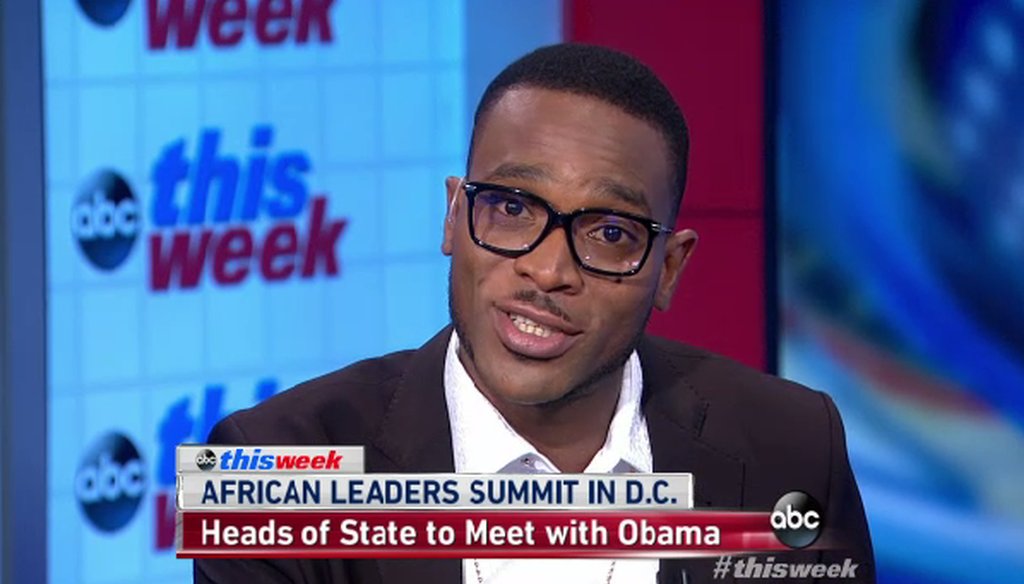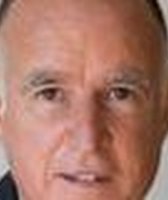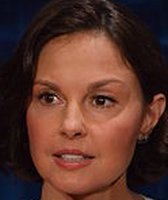Stand up for the facts!
Our only agenda is to publish the truth so you can be an informed participant in democracy.
We need your help.
I would like to contribute

D'Banj appeared on ABC's "This Week" on Aug. 3, 2014.
Amid ongoing concerns over the Ebola crisis in West Africa and Boko Haram’s latest attacks in Nigeria, the inaugural business summit between the leaders of the U.S. and dozens of African nations wrapped up this week.
And just as navigating the economic future of the continent can be difficult, PunditFact’s checks this week showed that talking about Africa can be just as tricky.
Education spending
Former New York mayor Michael Bloomberg praised the summit on Aug. 3’s Face the Nation, and pointed to education spending as the best evidence of big things to come in Africa.
"China has looked at it and said this is a place where because they are spending highest percentage of their GDP on education of any part of the world, although in all fairness it's starting small," he said. "But you are going to create a middle class there that's going to want an awful lot of the products."
"The next big cities," he said, "are going to be in Africa."
A report by the McKinsey Global Institute pegs Africa’s public spending on education as a percentage of GDP at 5 percent in 2008. That’s "a smaller portion than the OECD countries’ 6 percent," they wrote, "but more than in Latin America or some Asian countries."
Looking at more recent data from the United Nations, we calculated that Africa lags behind Latin America and Oceania, in addition to North America and Europe.
If you take education spending as a percentage of government spending, not GDP, Africa actually beats out the OECD, according to the McKinsey Global Institute. But that’s not how Bloomberg framed it.
We rated Bloomberg’s claim False.
Music exports
Also chiming in on the summit was a Nigerian popstar some call "Africa’s Bono." D’Banj, an ambassador for the ONE Campaign, discussed the summit on ABC’s This Week on Aug. 3, and he said that Africa puts out more beats than anything else, except barrels.
"The theme of the summit is … investing in the next generation," he said. "Ten years ago, we did not have any (music) industry, we did not have any support. We did not even have any record label. And because we believed in ourselves and we believed in what we had, we continued. And now the music industry is the biggest export from Africa after oil and gas."
We used World Trade Organization data to calculate Africa’s total export revenue, around $720 billion. Fuel exports account for 49 percent of that total, and the entire entertainment industry brought in $480 million in exports. That’s less than 0.1 percent of the total export revenue, lagging behind minerals and agricultural products, which are at least 100 times larger.
Experts said the reported revenue may be less than the actual numbers though, due to the lack of a reporting and distribution infrastructure in Africa. But it wouldn't be enough to make a significant different.
Nonetheless, the industry is burgeoning as digitization becomes more popular. And of course, the continent is home to Akon, K'naan, and Ladysmith Black Mambazo to name a few. D’Banj himself had an international hit and was signed onto Kanye West’s G.O.O.D. Music label. So Africa has a good story to tell about its music, but that doesn't mean it's a major export.
Our Sources
See individual fact-checks.










































